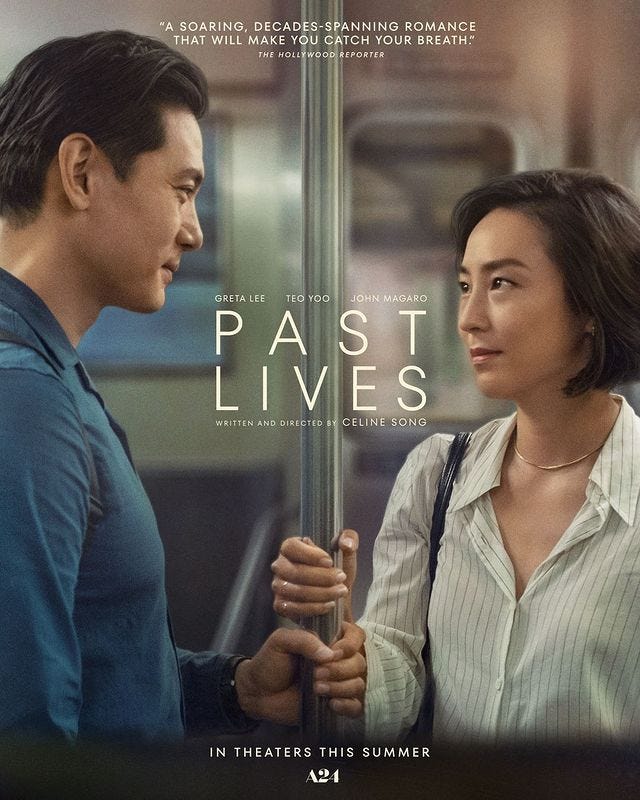Issue #48: Past Lives, and the lure of reconnecting with your childhood crush
Can an old flame unlock a lost version of yourself?
When I was 12, I had a crush on the boy who sat next to me in Geography. He had big green eyes amplified by thick glasses, an astonishing vocabulary, and made me laugh more than anyone I’d ever met. I was smitten.
Past Lives, the much-talked-about romantic drama film from South Korean-Canadian director Celine Song, starts in much the same way: Na Young (who later renames herself ‘Nora Moon’ after immigrating) and Hae Sung are 12-year-olds flirting in a classroom. But then, Nora’s family immigrates to Toronto. What ensues is a plot line that’s not Boy Meets Girl so much as Boy Reunites with Girl – which, the film suggests, can hold just as much romantic potential as the former trope.
Much of the action centres around Hae Sung’s trip to New York (where Nora has immigrated for a second time) to reunite with his former classmate for the first time in 20 years, a prospect which understandably unsettles Nora’s writer husband, Arthur. ‘I’m just thinking about what a good story this is,’ he says. ‘Childhood sweethearts who reconnect twenty years later only to realise they were meant for each other.’
Arthur is right to see the romantic potential. Their reunion – facilitated by Facebook – made me think of the reported wave of high school sweethearts who reconnected after the advent of Friends Reunited in 2000. Four years later, the site was blamed for a spike in divorce rates.
Nora’s marriage appears to be in similarly dangerous territory. Both Nora and Hae Sung feel the ‘intensity’ of their meeting, and the attraction between them in palpable. For Nora, Hae Sung reconnects her with a version of herself that she believes she left behind when her family moved away from Seoul: her childhood ambition, her Korean heritage. Despite evidence to the contrary, Nora is insistent that this past version of herself ‘doesn’t exist here’ i.e. in New York:
‘But that little girl did exist. She’s not sitting here in front of you, but it doesn’t mean she’s not real. Twenty years ago, I left her behind with you.’
Are you the same person you used to be?
In an essay for the New Yorker, writer Joshua Rothman tackles the age-old debate, ‘Are you the same person you used to be?’. According to philosopher Galen Strawson (whom Rothman cites), we tend to approach this question in one of two ways.
Keep reading with a 7-day free trial
Subscribe to The Shoulds by Francesca Specter to keep reading this post and get 7 days of free access to the full post archives.






